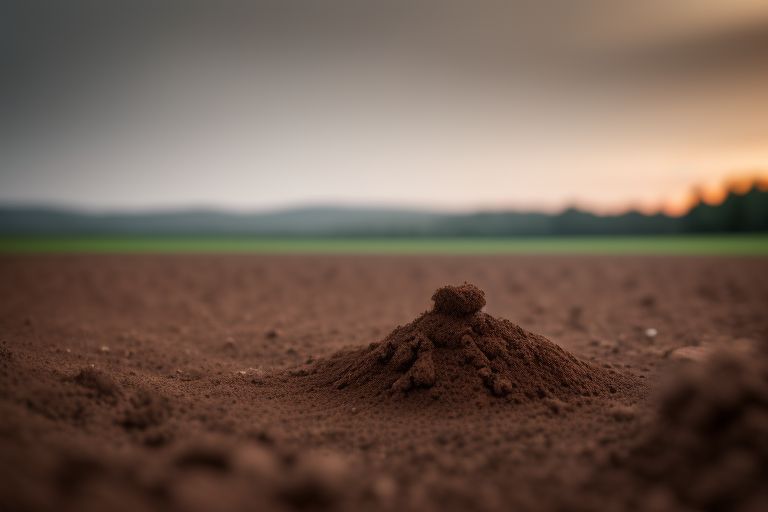Soil Material Testing in the UAE: Unique Challenges and Solutions

Introduction
Soil material testing is an important stage in guaranteeing the stability, safety, and success of construction projects. The UAE's unique geological characteristics and rapid urban expansion make this process even more vital.
From high-rise buildings to large infrastructure projects, understanding soil qualities is critical for avoiding costly failures and ensuring long-term structural integrity.
In this article, we will look at the specific issues that soil material testing encounters in the UAE, as well as the solutions that have been developed to address them.
Why Does Soil Material Testing Matter in the UAE?
The UAE is noted for its rapid expansion, with new buildings, roads, and bridges being constructed on a regular basis around the region. Soil material testing allows engineers to better understand the soil's composition, stability, and strength, as well as how it will interact with construction materials.
Accurate testing helps prevent structural difficulties including shifting foundations, water retention issues, and soil erosion, all of which can have disastrous effects for construction projects.
Unique Challenges of Soil Material Testing in the UAE
1. Arid and Dry Climate
The UAE's dry, arid environment is one of the most challenging aspects of soil material testing. Low rainfall and high evaporation rates can have an impact on soil qualities, notably moisture content. Soils may appear dry on the surface, but they may contain variable amounts of moisture deep underground, affecting their compaction and load-bearing capacity. To ensure accurate results under these conditions, specialist testing methods must be used.
2. Salinity and High Water Tables
Many regions in the UAE have high soil salinity levels, particularly those near coastlines. Saline soils can pose considerable construction issues, including material corrosion and foundation degradation over time. Furthermore, places with a high water table can cause problems including poor drainage and soil instability. Soil material testing in these areas frequently includes determining the salinity of the soil and its ability to drain efficiently.
3. Soft and Loose Soil Layers
In some sections of the UAE, particularly in desert areas, the soil may be fragile and loose, with insufficient strength to support massive constructions. These soil layers might settle unevenly under stress, causing foundation issues. Soil material testing in such places is critical for determining the level of compaction and stability, which is required to avoid long-term settling difficulties.
4. Extremely hot temperatures
The UAE faces intense heat, especially during the summer months. This can cause the soil to expand and shrink, affecting its stability. Hot temperatures can influence the pace at which soil moisture evaporates, affecting compaction and load-bearing capability. To obtain accurate results, soil testing equipment must be constructed to work properly under these extreme conditions.
5. Rapid Urban Development
With the UAE's rapid urbanization, construction projects are frequently erected on land that has limited historical information regarding its soil composition. This lack of historical soil data poses a barrier because engineers must rely on testing to acquire a full picture of the site's feasibility for development. Due to the rapid pace of development, soil material testing must be both precise and prompt in order to avoid project delays.
Solutions for Overcoming These Challenges
1. Advanced Test Techniques
To address the problems given by the arid climate and high salinity, soil material testing in the UAE frequently uses modern techniques such as geotechnical surveys and laboratory tests. Soil moisture content, for example, is measured with precision using specialist equipment that accounts for both surface and subsurface moisture. In coastal areas, salt content is examined to determine the risk of corrosion or long-term material degradation.
2. Soil Stabilization Methods
In places with soft or loose soil, soil stabilization procedures are frequently used to increase the soil's bearing capacity. Compaction grouting, lime stabilization, and cementitious stabilization can all help to reinforce the soil and make it more appropriate for construction purposes. These techniques are especially useful in situations where the foundation's integrity is critical.
3. Application of Geotechnical Engineering Software
As technology advances, geotechnical engineers in the UAE rely more on specialized software to assess soil data. These tools can mimic how soil would react under various conditions, helping engineers to make better decisions about foundation construction. This reduces the dangers associated with fast urbanization and guarantees that new projects are constructed on strong foundations.
4. Monitoring Soil Behavior Over Time
In many circumstances, ongoing monitoring of soil behavior during and after construction is critical. This can be accomplished using sensors implanted in the ground to monitor moisture levels, compaction, and other elements that may impact the construction over time. Such monitoring helps to spot problems early on, allowing for prompt interventions.
5. Collaboration With Local Experts
The UAE's unique geological conditions necessitate collaboration with local experts who are well-versed in the region's soil peculiarities. These professionals provide vital insights into the area's specific difficulties and contribute to the development of tailored diagnostic and treatment solutions.
Conclusion
Soil material testing is an important element of building in the UAE, especially considering the region's unique climate, soil varieties, and rapid urbanization. Engineers may ensure that their projects have stable foundations by using advanced testing methods, soil stabilization techniques, and cutting-edge technologies. With the proper testing and analysis, soil-related issues may be discovered and treated before they become major problems, assuring the safety, durability, and success of UAE building projects.
So, whether you're building a skyscraper in Dubai or a bridge in Abu Dhabi, remember that proper soil material testing is essential for a stable and long-lasting project.
Note: IndiBlogHub features both user-submitted and editorial content. We do not verify third-party contributions. Read our Disclaimer and Privacy Policyfor details.


